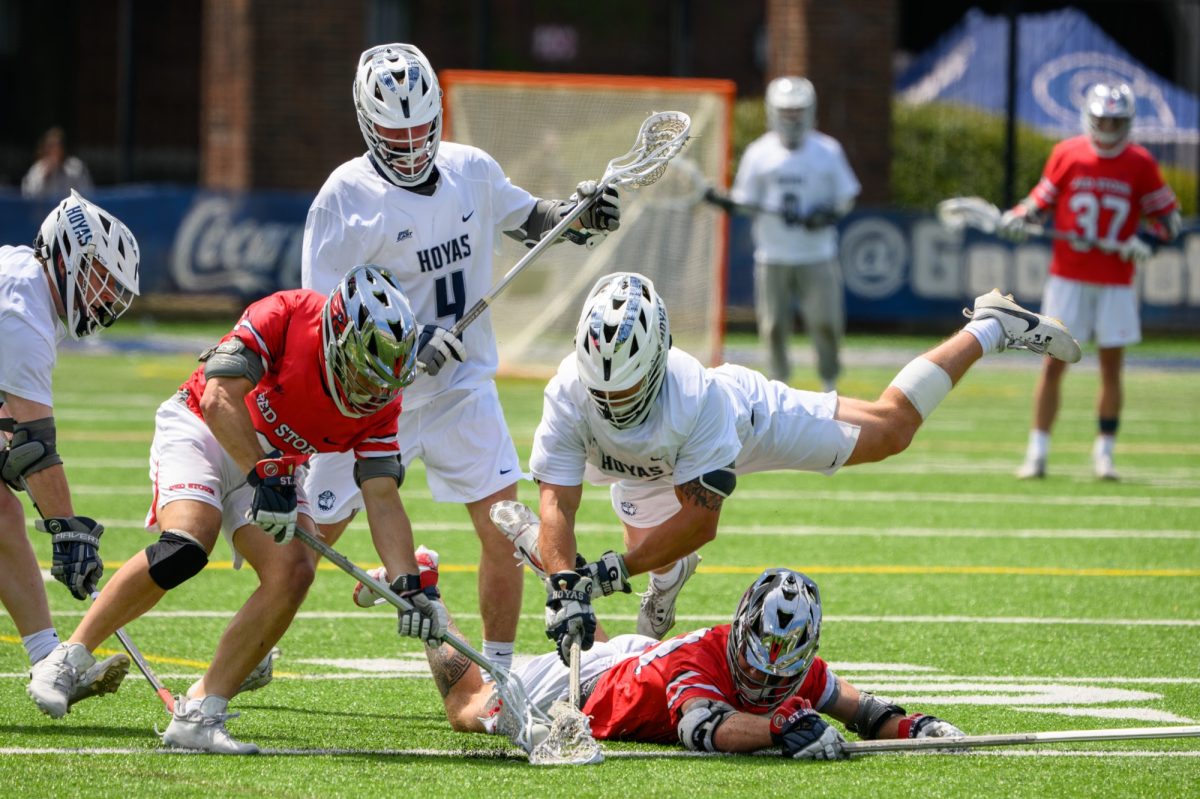Nico Rosberg finally did it.
After a cutthroat season that pit Rosberg against his Mercedes teammate and reigning two-time world champion Lewis Hamilton, the 31-year-old German followed in his father Keke Rosberg’s footsteps to earn the title of 2016 Formula 1 World Champion. The world was Rosberg’s oyster.
Then five days later, Rosberg gave it all up.
On Dec. 2, Rosberg shared a five-paragraph message on his social media accounts with the cryptic caption, “I have a message for you.” In the letter, Rosberg described his elation at reaching his “one dream” that motivated him during his 25 years of racing, as well as the toll that this season took on him and his family.
Then, at the end of the third paragraph, Rosberg shocked the world: on the heels of his World Championship, Rosberg announced his retirement from Formula 1.
Astounded fans and commentators alike questioned his decision, considering Rosberg had just won his first World Championship. He was still racing for Mercedes, the Formula 1 Constructors Champion for three years in a row. Future World Championships were not out of the question.
So why quit now?
An adage has an answer for that: “Quit while you’re ahead.”
Such a strategy, of course, is easier said than done. The perfect time to leave an illustrious career is elusive in both sports and politics. It demands that a person decide between leaving now with what you have — effectively giving up on the promise of future success — or take a gamble on the future, risking a legacy.
Rosberg’s choice to go out on top involves the least risk for his future legacy, but also gives up on the potential for a huge reward. By choosing to retire early, Rosberg avoids questions about his declining career in favor of protecting his legacy as a World Champion racer — but he also gives up his chance to put more accolades under his belt.
As rare as Rosberg’s decision was in the high-stakes high-rewards world of professional sports, it is perhaps even rarer in politics, where ego and ambition keep politicians of every stripe from stepping down from their positions.
One name, though, stands out in U.S. history specifically because he chose to retire even when he could have continued his political career. This figure is our nation’s first president, George Washington, who declined to run for a third presidential term. Washington’s choice to limit his presidency to two terms not only undeliberately established the two-term constitutional limit that would apply to U.S. presidencies until 1940, but also painted Washington as a selfless public servant in American history.
At the opposite end of the spectrum is the idea of “going past your prime,” or retiring far after a revered figure’s career has reached its peak. These powerful figures continue their careers and perform extraordinarily well, but their latest victories pale in comparison to their previous successes, which spark debates over whether these figures should have retired earlier.
Tennis legend Roger Federer provokes such questions because of his respective decisions to continue competing past his prime years as an athlete. Certainly, Federer continues to be one of the best tennis players in the world. Considering Federer has not won a Grand Slam title since 2012 but continues to play today, his decision to continue opens the door to questions about quitting earlier.
In contemporary politics, Hillary Clinton too presents a conundrum. When Clinton left her post as Secretary of State in 2013, her favorability rating was 64 percent — one of the highest approval ratings she has had since she began life under public scrutiny. During her run for president four years later, Clinton’s favorability ratings dipped to as low as 41 points — the lowest it had been since the early 1990s.
Clinton still made history as the first female presidential nominee for a major political party. But she also leaves with scandals attached to her name — “Hillary Clinton e-mails” surely ranks among 2016’s worst products — that may spark the question of whether this presidential run was worth it.
Then, perhaps more painfully, there are figures who retired, then returned with varying degrees of success.
The most successful among them are basketball legend Michael Jordan and California governor Jerry Brown. Jordan retired in 1993, but returned to basketball two years later to win three straight championships with the Chicago Bulls. Brown served as California’s governor for six years in the late 1970’s and early 1980’s and retired from politics in 1992 after two failed presidential runs. He has since returned to politics and currently serves as Governor of California once again.
On the less successful side of un-retired figures are Michael Jordan, again, and U.S. Representative Anthony Weiner. Jordan retired after winning his three championships with the Bulls and earned all the goodwill an NBA player can attract, only to return to the NBA in 2001 for two less-than-stellar seasons with the Washington Wizards that prompted Kanye West’s not- so-unwarranted, “We should have never ever let MJ play for the Wizards” line.
Weiner, on the other hand, has retired twice, and neither time with grace or honor. In 2011, Weiner stepped down from his position after news broke that he was sending sexually explicit photos of himself to several women. Weiner returned to politics five years later to run for Mayor of New York City, only to mire himself in more sexting scandals and earn him the public scorn of Vice President Joe Biden.
Looking at these cases, it is hard to determine if there is such a thing as the perfect time to quit. There will never be a way to determine how individuals’ reputations would be different if they decided to retire early rather than continue playing. But, at the very least, all these great figures — and their fans — can ask for is the chance to be able to leave on their own terms, whatever those terms may be.
Kara Avanceña is a senior in the School of Foreign Service. This is the final installment of The Front Runners.














